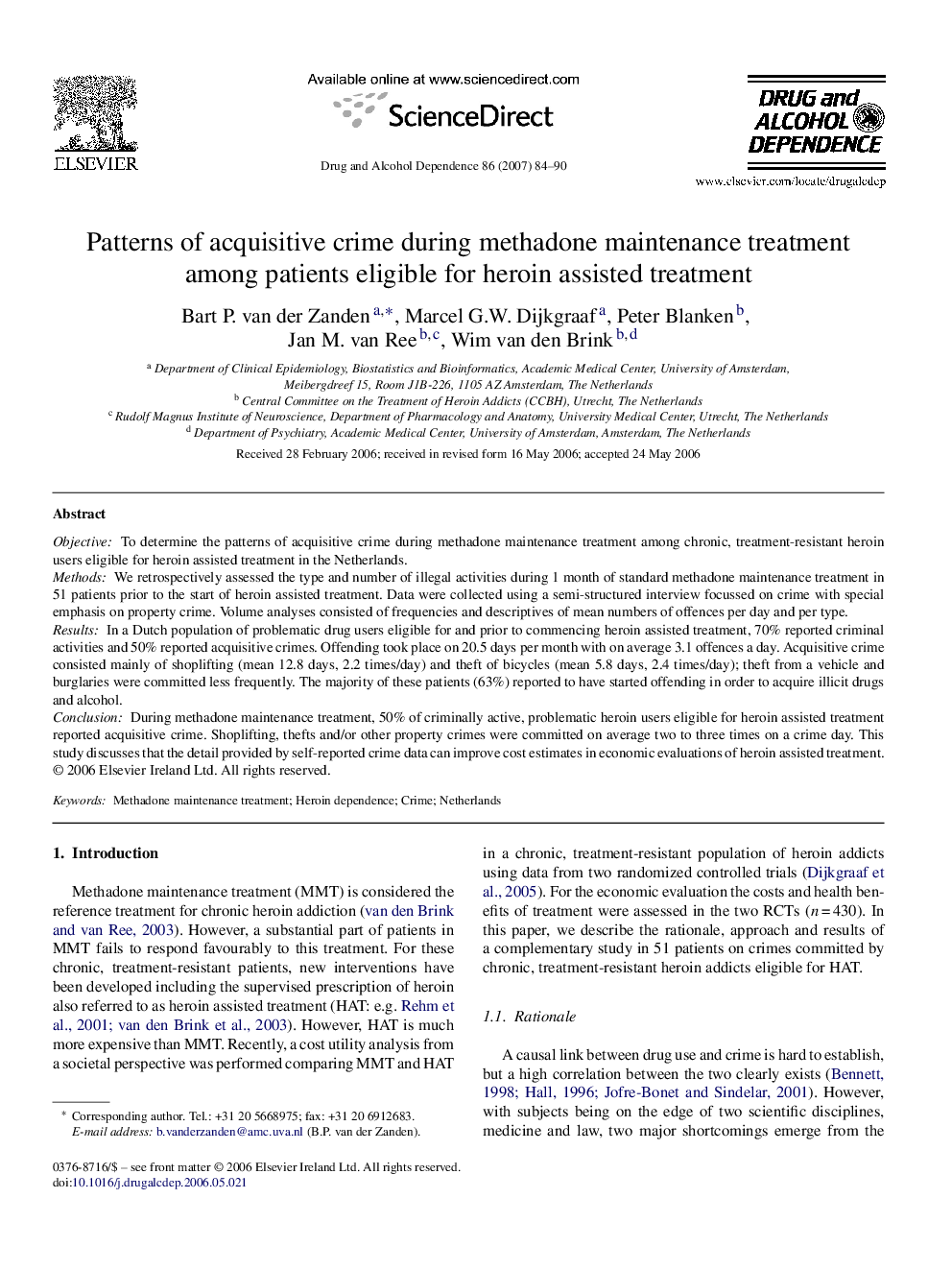| Article ID | Journal | Published Year | Pages | File Type |
|---|---|---|---|---|
| 1071840 | Drug and Alcohol Dependence | 2007 | 7 Pages |
ObjectiveTo determine the patterns of acquisitive crime during methadone maintenance treatment among chronic, treatment-resistant heroin users eligible for heroin assisted treatment in the Netherlands.MethodsWe retrospectively assessed the type and number of illegal activities during 1 month of standard methadone maintenance treatment in 51 patients prior to the start of heroin assisted treatment. Data were collected using a semi-structured interview focussed on crime with special emphasis on property crime. Volume analyses consisted of frequencies and descriptives of mean numbers of offences per day and per type.ResultsIn a Dutch population of problematic drug users eligible for and prior to commencing heroin assisted treatment, 70% reported criminal activities and 50% reported acquisitive crimes. Offending took place on 20.5 days per month with on average 3.1 offences a day. Acquisitive crime consisted mainly of shoplifting (mean 12.8 days, 2.2 times/day) and theft of bicycles (mean 5.8 days, 2.4 times/day); theft from a vehicle and burglaries were committed less frequently. The majority of these patients (63%) reported to have started offending in order to acquire illicit drugs and alcohol.ConclusionDuring methadone maintenance treatment, 50% of criminally active, problematic heroin users eligible for heroin assisted treatment reported acquisitive crime. Shoplifting, thefts and/or other property crimes were committed on average two to three times on a crime day. This study discusses that the detail provided by self-reported crime data can improve cost estimates in economic evaluations of heroin assisted treatment.
